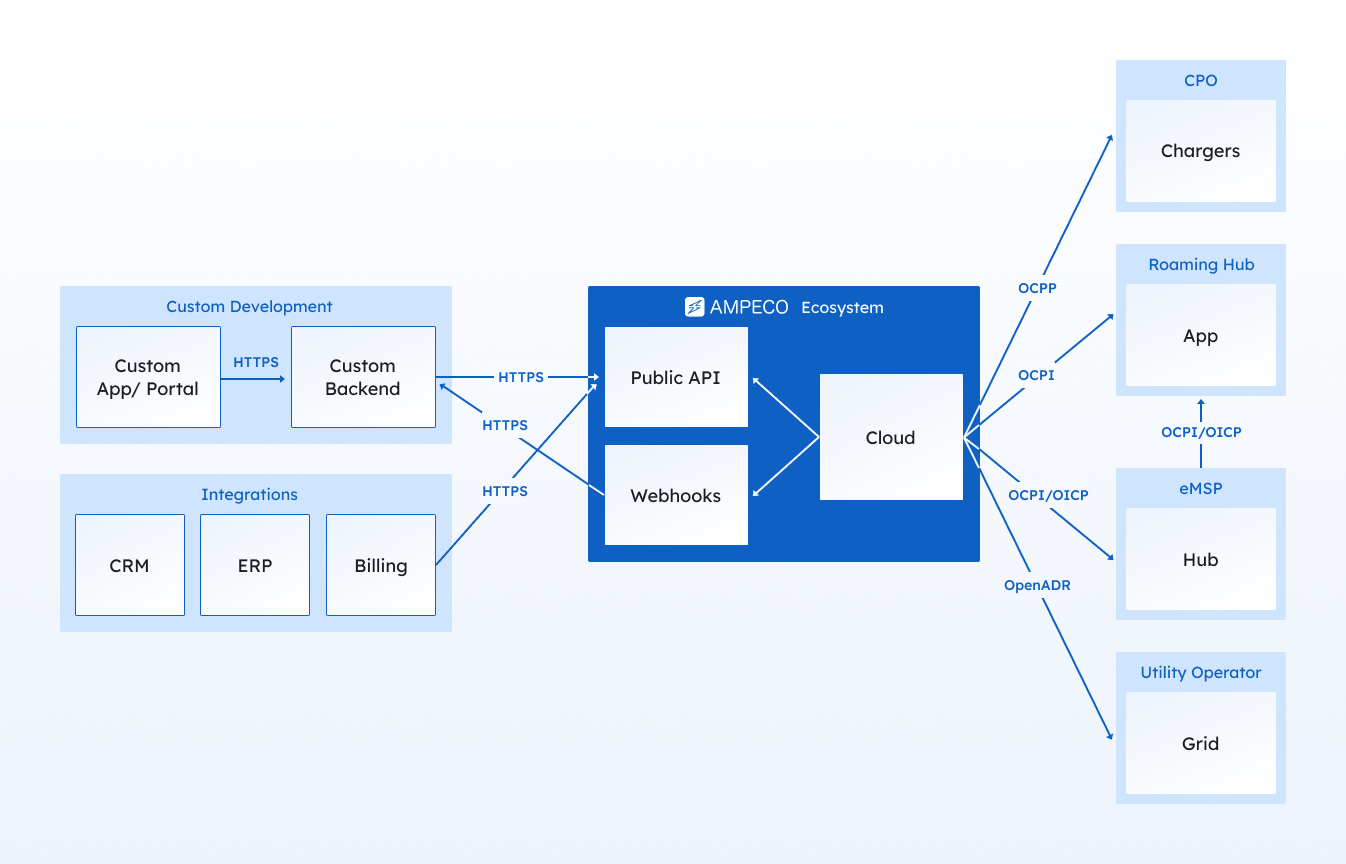Overview of the platform

AMPECO Public API encompasses 90% of the back-office functionalities, allowing you to accomplish a wide range of tasks. Whether it's creating a customized mobile app, developing a bespoke back-office system, or integrating with third-party software such as ERP, CRM, or billing systems: AMPECO Public API is the tool for that. It's essential to note that the API should be primarily accessed host-to-host. There are some use cases where client-to-host integration is possible, but it's an exception rather than a pattern. A robust software architecture is crucial for mitigating security risks and minimizing server downtime. The AMPECO team is eager to assist customers in designing a tailored solution and sharing insights gained from numerous successful integrations we've undertaken thus far.
Main players
- Tailoring your client application and backend for a personalized development experience.
- Seamlessly integrating various external tools such as CRM, ERP, billing systems, and more.
- The AMPECO Ecosystem comprises a Public API, Webhooks, and Cloud services.
- The CPO oversees the installation, management, and optimization of chargers/stations from multiple manufacturers.
- The eMSP delivers an electric vehicle charging service to EV drivers.
- The Roaming Hub serves as a platform for the exchange of charging data between Charge Point Operators (CPOs) and Electromobility Service Providers (eMSPs).
- The Utility Operator procures energy at the wholesale level and distributes it to both end users and large customers.
Protocols and standards
- OCPP serves as an application protocol facilitating communication between electric vehicle (EV) charging stations and central management systems, even when they come from different manufacturers.
- The OCPI protocol is specifically crafted for the exchange of information concerning charge points, enabling seamless communication between Charge Point Operators and Electromobility Service Providers, thereby promoting scalable and automated EV roaming.
- OICP, established by Hubject, a consortium of prominent German automotive and energy companies in 2012, includes not only the protocol itself but also provides ad-hoc payment solutions and a contractual framework to facilitate EV roaming.
- OpenADR offers a non-proprietary, open, standardized, and secure interface for demand response (DR). This interface empowers electricity providers to communicate DR signals directly to their customers using a common language and established communication channels such as the Internet.
Updated 18 days ago